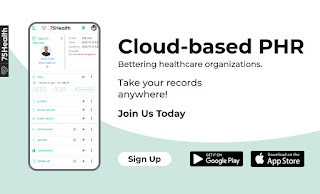HIPAA Helps Patients to Save Sensitive Data in Personal Health Records Software
For patients, accessing health information was not possible
in the past but thanks to the internet as it is providing 24/7 access. Tools
were found for common people to use advanced technologies; educate and use the support
system to understand health information.
The government has created appropriate laws to control these
technologies to not harm people's privacy when they regularly use them. HIPAA helps
patients to save sensitive data in Personal Health
Records Software.
Consumers are given a patient portal to add, view and
research their records in an authorized space. In research, patients with
sickle cell disease were given Personal
Health Records Software on their smartphones because they are far distant
from healthcare organizations for regular check-ups. This became a responsible step
and found patient satisfaction levels and medication outcomes are improved.
Personal Health
Records (PHR) Software is a lifelong resource for people to track health
conditions. Patients can manage health-related information in the smartphone, assisted
with healthcare providers support.
HIPAA
Personal Health
Records Software always has a HIPAA certificate and it stands for Health
Insurance Portability and Accountability Act of 1996, which is a federal law
enacted by the United States to protect patient health information. Even for clinical
decisions, patient approval is required to disclose their information.
HIPAA has three rules for protecting the information
- The Privacy Rule: It foretells what kinds of organizations are eligible for HIPAA and individual patient rights over protected health information. Healthcare includes its plans, associated clearinghouses, and allows de-identified health information for research purposes.
- The Security Rule: It sets the standards for protecting PHI in electronic format and gives clear guidelines; what health information, what safeguards measures are placed to give confidence, training employees based on the compliance and periodical risk analysis for integrity.
- The Breach Notification Rule: Usage of PHI usage without following the Privacy rule is called a breach. Once PHI is breached, the alerts must be sent in the next 60 days to affected individuals and Health and Human Services.
Patient Portal
Patient portals are online applications designed for
patients to interact with healthcare providers and general practitioners. It is
available on the Internet so the patient can access it at any hour of the day
and night. Patient portals are integrated with EMR/EHR Software to update live
information.
Benefits
Patients said they had peace of mind when accessing health
records immediately was possible on their own. They can understand whether they
are in good condition or not and do they need any further consultation. This
makes them engaged and well interacting with doctors.
- Programmed to send medication reminders on time
- Easy communication in health vocabulary language
- The audit trail is a series of activities recorded with each procedure and event
- Information source is pinned for evidence
- The individual decision for information incorporation



Comments
Post a Comment